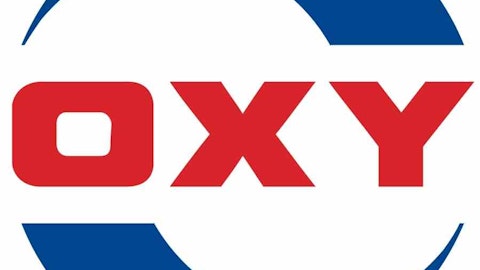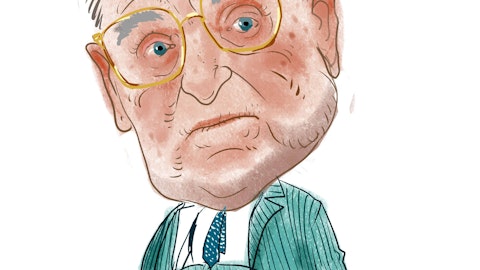It’s no secret that oil and gas behemoth Chevron Corporation (NYSE:CVX) operates in a vast array of locations. Along with being a major player in the deepwater Gulf of Mexico, it’s also the top dog in Australia’s burgeoning LNG world. It’s active in Sub-Saharan Africa and is the only major company working upstream in Saudi Arabia. It’s also busy across Southeast Asia, and is trying to plumb hydrocarbons from Poland’s shale formations.

Now, almost at once, there are tangible developments on all three of these fronts. Of course, progress in Ecuador, OPEC’s tiniest member, doesn’t imply new oil or gas discoveries or a pact for new exploratory efforts. It simply means that an ordeal of lawsuits and countersuits, all played out against a backdrop of apparently rampant fraud in the Ecuadorian legal system, may be coming to an end.
Swatting Ecuador’s pesky mosquito
You probably know the story: In 2001 Chevron Corporation (NYSE:CVX) acquired Texaco Petroleum, whose own colorful history hearkened back to the 2001 Spindletop gusher near Beaumont, Texas. With Texaco’s assets, Chevron also assumed claims that the newly acquired company had, while operating in Ecuador prior to 1992, fouled its Amazon rain forest work site. This, despite state-owned Petroecuador having owned a 62.5% majority of the consortium in which Texaco participated. The Ecuadorian company also continued to work in the affected area for more than 20 years after Texaco’s departure.
A trial that was subsequently conducted in the Andean country resulted in a clearly “homecooked” $19 billion judgment against Chevron Corporation (NYSE:CVX). However, both during and after the legal circus (which included a parade of about a half dozen presiding judges), Chevron uncovered likely indications of high-stakes shenanigans on the plaintiff’s side.
For instance, it appears likely that reports by “independent” environmental consultants were actually ghostwritten by plaintiffs’ lawyers. And even more amazingly, the judgment itself may actually have been the product of those same attorneys’ penmanship.
Indeed, just last week the final judge to oversee the trial, who had signed his name to the judgment failed to appear to provide testimony in Lima regarding whether he really was the decision’s author. Couple that with an earlier order by the Permanent Court of Arbitration in The Hague that the Republic of Ecuador cease in its attempt to enforce the judgment until Chevron’s claims of violations of international law have been resolved, and you have litigation almost certainly on its last legs.
It’s unlikely that the plaintiff’s attorney will quietly fade into the night, however. Indeed they’ve clearly found an ideal incubation site for their efforts to extract lucre from a big American company. But, Chevron Corporation (NYSE:CVX) isn’t alone in encountering legal devilry in Ecuador. Fully 39 arbitration requests have been filed with the World Bank by international companies involved with Ecuador’s powers that be. Last year the bank’s Center for Settlement of Investment Disputes ordered the country to pay $1.77 billion to Occidental Petroleum Corporation (NYSE:OXY), following the seizure of the company’s assets there in 2006.
Thin ice in Argentina?
Speaking of plucking a company’s assets by a host country, Argentina’s Kirchner government proved itself adept at that action last year when it nationalized most of the 51% interest in energy producer YPF then held by Spain’s Repsol. No compensation was proffered, and Repsol is now seeking about $10.3 billion in restitution.
Nevertheless, because reality involves big oil companies signing onto potentially precarious pacts in the perpetual quest for new reserves — as with ExxonMobil’s big new venture with Russia’s Rosneft — it appears that Chevron may be in the process of reaching an agreement to ante up $1.5 billion for the right to participate in the development of the Vaca Muerta basin, which it believes to be the world’s second-largest unconventional oil reservoir.
So Chevron will cast its lot with the wobbly administration of President Kirchner, which is battling sky-high inflation and less than amused creditors. Others are already involved there, including Apache Corporation (NYSE:APA) and EOG Resources Inc (NYSE:EOG), which were among the companies that discovered oil and gas in the Vaca Muerta shale a couple of years ago. And there will be more to come, since Chevron’s $1.5 billion is a tenth of the amount that YPF intends to raise.
Back to work in Brazil
Finally, regarding Brazil, Chevron was granted permission last month by the National Petroleum Agency to resume operations at its Frade field off Rio de Janeiro. The company had been shut down there since a November 2011 spill — or possibly a seepage — leaked about 2,600 barrels of crude into the Atlantic Ocean.
Criminal charges initially leveled against employees of Chevron and driller Transocean LTD (NYSE:RIG) have been dropped, but the country is still seeking $20 billion in damages from the pair. For the sake of perspective, that’s identical to the amount of the initial trust established by BP plc (ADR) (NYSE:BP) in response to the 2010 Macondo blowout, which gushed 4.9 million barrels of Louisiana sweet crude into the Gulf of Mexico.
Foolish takeaway
Chevron’s affairs in South America are pointing in a far more positive direction than was the case a year ago. Add to that the company’s bevy of other successful global operations, its solid balance sheet, and you have a positive energy addition to any Foolish portfolio.
The article Chevron’s Promising South American Trifecta originally appeared on Fool.com and is written by David Smith.
Motley Fool contributor David Smith owns shares of BP p.l.c. (ADR) and Transocean. The Motley Fool recommends Chevron. The Motley Fool owns shares of Apache and Transocean.
Copyright © 1995 – 2013 The Motley Fool, LLC. All rights reserved. The Motley Fool has a disclosure policy.

